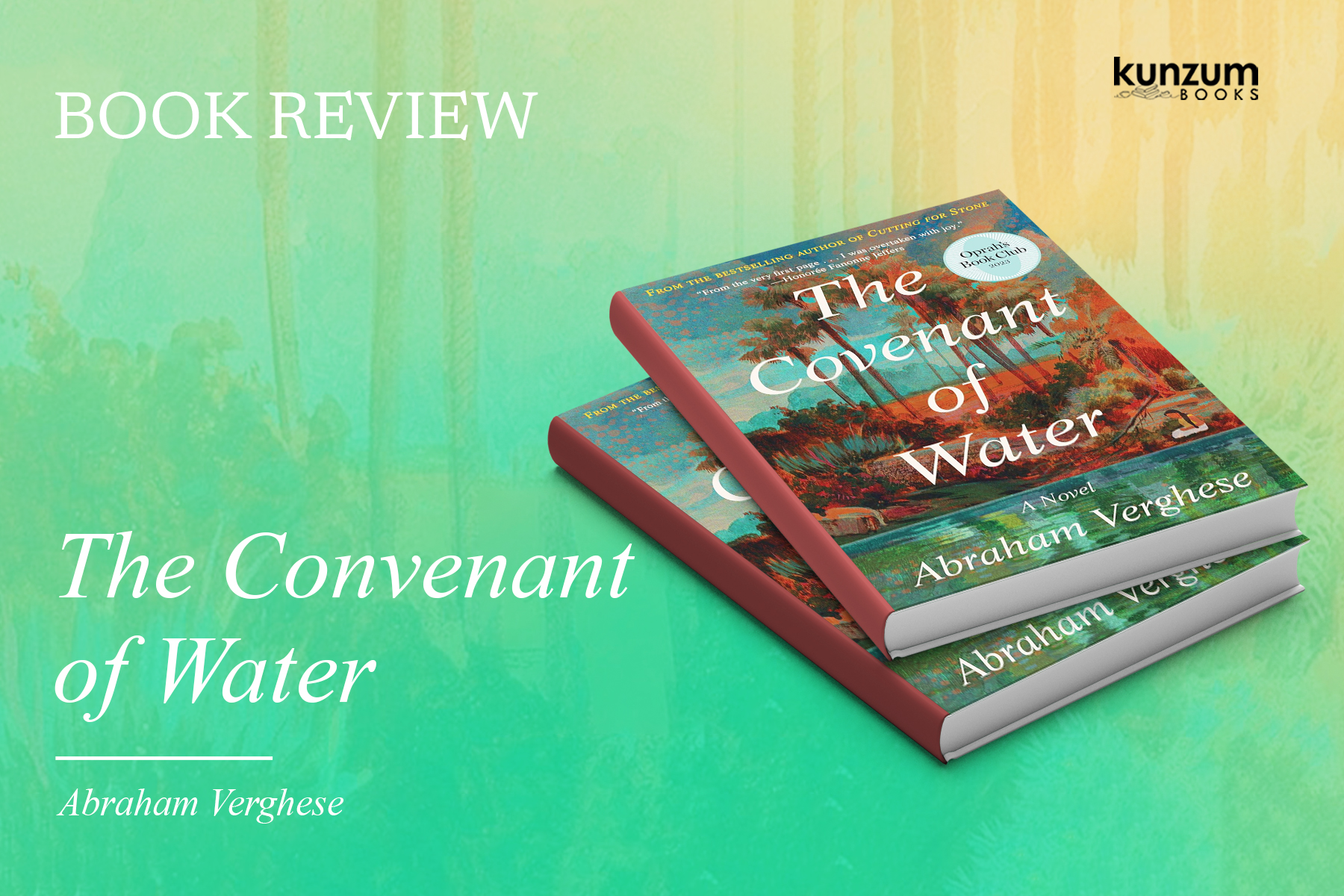
“She is twelve years old, and she will be married in the morning.”
So begins The Covenant of Water, Abraham Verghese’s over-700-pages-long magnum opus. The year is 1900, and the place— Travancore. In Verghese’s words: “…at the southern tip of India, sandwiched between the Arabian Sea and the Western Ghats (…) The land is shaped by water and its people united by a common language: Malayalam.”
Verghese’s Travancore is a place woven with unique and scintillating imagination, more akin to Gabriel García Márquez’s Macondo than any real Travancore that may have ever existed at any point of time. “It is a child’s fantasy world of rivulets and canals, a latticework of lakes and lagoons, a maze of backwaters and bottle-green lotus ponds…”
The plot spans, mirrors and diligently follows, like the path of a river, the maze-like landscape of its female protagonist’s braided life. A twelve-year-old married off to a much older widower, the matriarch of her husband’s estate in her prime years, and then a grandmother in 1977 when her granddaughter, a doctor, shockingly discovers the “condition” that has long afflicted the family. The story of Verghese’s sophomore novel, published fourteen years after his first, is too vast and ambitious to summarise in a review, but has all the markings of a ‘Great Indian Novel’. From its exploration of everyday rituals (like the curdling of milk to make yoghurt) that make Indian life, to its reflections on India’s colonial and postcolonial history as well as the spread of communism in Kerala, the plot of this mammoth novel is truly epic in scope and structure. An intergenerational roman-fleuve that cycles through the births, deaths and the many joys and tragedies in between, twisting and turning through natural calamities, socio-political upheavals, and the traumatic, tumultuous birth of a nation, The Covenant of Water breathlessly collapses the many inhales and exhales of the Indian people and their varied histories.
But in his attempt to encompass so much, Verghese inevitably and very noticeably falters at times. Things happen, and we, the readers, are expected to accept them and move on without questioning how or why they occur, lest the epic should lose its lyricism and momentum. The twelve-year-old child-bride (we don’t know her name until much later in the novel), who is described as someone who “did well in the church school” and has “a good head”, accepts and welcomes her much older husband and his young son who is not much older than herself; the coloniser and the colonised share an all-too-cordial camaraderie that is so devoid of friction that it might as well be described as friendship; India’s ancient, cruel caste system is mentioned and waved away as a simple matter of fact, nothing more than arbitrarily ascribed high and low birth (which, of course, it is, but as any Indian would know, it is so much more than that!); and Independence erases all the adverse effects of colonialism almost immediately. Despite the aspirational structuring of the novel, The Covenant of Water suffers from the unmissable shortcomings of a passionate diaspora project that has all the beats and set pieces, like a monsoon flood, an accidental fire, an epidemic, train journeys, and crowded streets, in place. And yet it lacks the certain je ne sais quois that sets other ‘Great Indian Novels’ apart.
Verghese’s novel is best read not as a work of literary realism like Vikram Seth’s A Suitable Boy, Jhumpa Lahiri’s The Namesake, or Arundhati Roy’s The God of Small Things — although some comparison with the latter is unavoidable — but as an epic family saga laced with fabulism, in the same vein as Salman Rushdie’s Midnight’s Children, or Gabriel García Márquez’s One Hundred Years of Solitude. Although it falls far short of those Great Novels, it still makes for an important addition to the Indian literary canon, if only for Verghese’s efforts to recreate a specific period and place in India’s modern history. Like Marcel Proust once said (which one of the characters paraphrases at one point): “The real voyage of discovery consists not in seeking new landscapes, but in having new eyes.”
Pick up Abraham Verghese’s The Covenant of Water from any Kunzum store or WhatsApp +91.8800200280 to order. Buy the book(s) and the coffee’s on us.

About the Reviewer:
Drishya (he/him ⸱ b. 1997) is a writer + artist based in Kolkata, India. He was shortlisted for the Mogford Prize for Food & Drink Writing, nominated for the BBA Photography Prize – One Shot Award in 2022, and selected for the ICA Long Form Food Writing Mentorship in 2024. He is @drishyadotxyz on Instagram and X.
